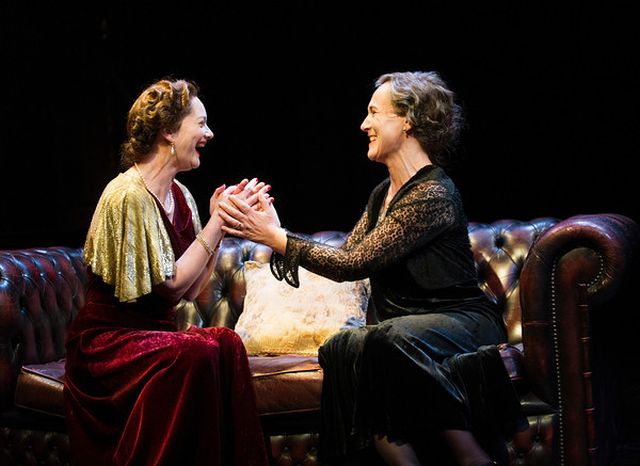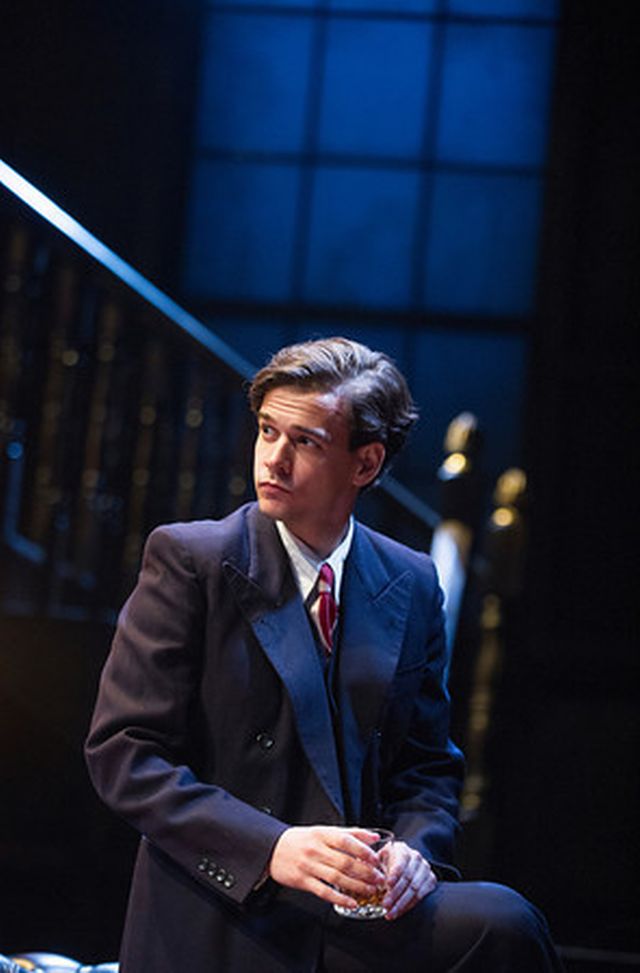In Bracken Moor Alexi Kaye Campbell inhabits similar territory to J B Priestley, whose work he admires. Like his predecessor, Campbell combines social comment with the mystical and spiritual and even chooses to set the action in pre-war Yorkshire. Orwell's The Road to Wigan Pier, published in 1937, quoted both in the dialogue and the programme, also contributes to the play's landscape.
There are, of course, resonances here for the present, another period of austerity and economic upheaval in Europe during which right-wing parties threaten to come to the fore. (A chance encounter with an admirer of Hitler is reported with some anxiety by three of the characters.) Kaye Campbell has drawn on earlier periods before, in his award-winning, Fifties-set The Pride and The Faith Machine (which visits the 1990s), both for the Royal Court. Here, he skilfully recreates the feel of the 1930s, not least in the beautifully judged, slightly formal language which never lets us forget that his main subject is grief.
 As the play opens, it is 10 years since the death, in tragic circumstances, of Edgar, the 12-year-old son of industrialist Harold Pritchard (Daniel Flynn) and his wife Elizabeth (Helen Schlesinger, pictured right with Sarah Woodward). Vanessa (Woodward) and Geoffrey Avery (Simon Shepherd), friends from London, have brought their son, Terence (Joseph Timms), Edgar's close friend, to visit the couple after many years apart. Their intention is to persuade heart-broken Elizabeth to embrace life again. During their stay, Terence, who has abandoned university for a proto-hippy journey in search of spiritual enlightenment, seems to experience something like a haunting by Edgar and to speak in his voice to Elizabeth. As a result, she finds some comfort at last and the courage to reclaim her own future.
As the play opens, it is 10 years since the death, in tragic circumstances, of Edgar, the 12-year-old son of industrialist Harold Pritchard (Daniel Flynn) and his wife Elizabeth (Helen Schlesinger, pictured right with Sarah Woodward). Vanessa (Woodward) and Geoffrey Avery (Simon Shepherd), friends from London, have brought their son, Terence (Joseph Timms), Edgar's close friend, to visit the couple after many years apart. Their intention is to persuade heart-broken Elizabeth to embrace life again. During their stay, Terence, who has abandoned university for a proto-hippy journey in search of spiritual enlightenment, seems to experience something like a haunting by Edgar and to speak in his voice to Elizabeth. As a result, she finds some comfort at last and the courage to reclaim her own future.
Part of Kaye Campbell's achievement is to keep questions open. Terence - who would, it is clear, have been Edgar's lover in adulthood - may or may not be entirely in control of his apparent ghostly encounter. A rationalist could dismiss it, as Harold does, with reference to Freud and play-acting, but there was a deep affinity between the boys and, in the end, love can be more powerful than reason. The doctor who attends Terence recounts tales of strange events which may be no more than local traditions but which he does not dismiss out of hand. Elizabeth, seeing what could be evidence of Terence's deception, chooses to take it as a corroboration of the truth or possibly as simply no longer important.
 Kaye Campbell is an anti-literalist. He seems to say that, if human beings have to accept that not everything can be explained, they'd better make the most of their humanity and not fail to recognise and value love. This is especially so in a capitalist world more and more dependent on mechanisation. It is a lesson which Harold, a tough businessman with no pity for the workers he is about to lay off, has yet to learn; for him people have become no more than units in the industrial machine.
Kaye Campbell is an anti-literalist. He seems to say that, if human beings have to accept that not everything can be explained, they'd better make the most of their humanity and not fail to recognise and value love. This is especially so in a capitalist world more and more dependent on mechanisation. It is a lesson which Harold, a tough businessman with no pity for the workers he is about to lay off, has yet to learn; for him people have become no more than units in the industrial machine.
Polly Teale's Shared Experience production embraces the melodrama - claps of thunder, guttering gaslight and all - with unapologetic enthusiasm. This shows considerable daring: in the wrong hands, or with a nudge-nudge knowingness among the actors, the whole thing could easily be dismissed as risible hokum. But here the set (Tom Piper's grand but gloomy drawing room) and the exemplary cast smack of sturdy reality. Woodward finds humour in Vanessa's tart ripostes to her husband and Schlesinger's Elisabeth gently expresses the dignified anguish of a grieving parent, while Flynn's Harold is tough but not simply a monster. Timms (pictured above left as Terence) successfully walks the fine line between good-hearted if manipulative son and annoying young prig in a bold play that revels in its own theatricality.
- Bracken Moor at the Tricycle Theatre, London NW6, until 20 July















Add comment